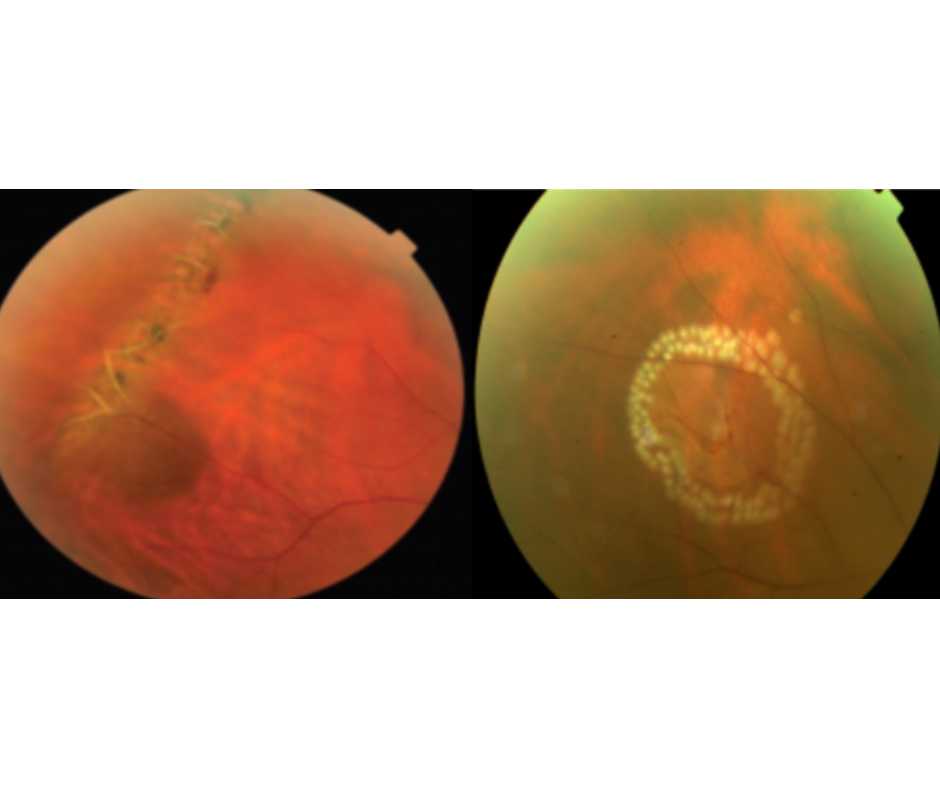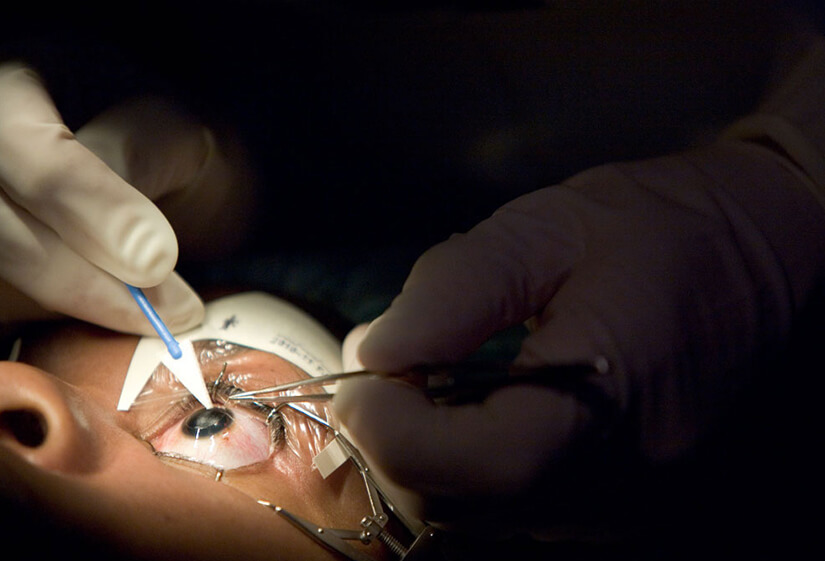Introduction:
Having a clear and focused vision is essential for a fulfilling life. However, some individuals may experience a condition called squint eye, also known as strabismus, where their eyes are misaligned. Squinting can lead to vision problems and affect a person’s self-confidence. In this article, we will explore squint eye treatment options that help correct misaligned eye, improve vision, and enhance overall eye health.
Understanding Squint Eye Treatments:
Squint eye, or strabismus, refers to a condition where the eyes are misaligned and do not look in the same direction simultaneously. It occurs when the eye muscles fail to work together, causing one eye to turn inward, outward, upward, or downward while the other remains in the correct position. Squint eye can affect people of all ages, from infants to adults, and can be present all the time or appear intermittently.

Causes of Squint Eye:
Several factors can contribute to the development of squint eye treatment, including:
- Genetics: A family history of squint eye increases the likelihood of an individual developing the condition.
- Eye Muscle Imbalance: Weak or imbalanced eye muscles can result in the misalignment of the eyes.
- Refractive Errors: Conditions such as farsightedness or nearsightedness can contribute to the occurrence of squint eye.
- Medical Conditions: Certain medical conditions like cerebral palsy or Down syndrome can be associated with squint eye.
Types of squint eye treatment:
There are different types of squint eye, including:
- Esotropia: The most common type, characterized by the inward turning of one or both eyes.
- Exotropia: Outward deviation of one or both eyes.
- Hypertropia: Upward deviation of one eye.
- Hypotropia: Downward deviation of one eye.
- Alternating Squint: The misalignment switches between the eyes.
Diagnosing squint eye treatment:
Diagnosing squint eye involves a comprehensive eye examination conducted by an ophthalmologist or an optometrist. The evaluation may include:
- Visual Acuity Test: Assessing the sharpness and clarity of vision.
- Cover Test: Observing the eye movement when one eye is covered at a time.
- Refraction Test: Determining the refractive error and need for corrective lenses.
- Ocular Motility Examination: Evaluating the range of eye movements and muscle coordination.
Early diagnosis is crucial for effective treatment and better outcomes.
Non-Surgical Squint Eye Treatment Options:
Non-surgical treatment options are often considered as the first line of management for squint eye. These include:
Eye Exercises
Specific eye exercises can help strengthen the eye muscles and improve coordination. Eye care professionals usually recommend these exercises, and patients need to perform them regularly for optimal results.
Corrective Eyewear
In many cases, wearing prescription eyeglasses or contact lenses can help correct refractive errors, thereby reducing eye strain and minimizing the occurrence of squint eye. These corrective lenses should be worn as advised by the eye care specialist.
Vision Therapy
Vision therapy is a specialized treatment program conducted under the supervision of an optometrist. It involves a series of exercises and activities designed to improve eye movement, coordination, and focusing abilities. Vision therapy can be particularly beneficial for children with a squint eye.
Surgical Treatment Options
When non-surgical methods do not provide the desired outcomes or when squint eye is severe, surgical intervention may be necessary. The following surgical treatment options are available:
Strabismus Surgery
Strabismus surgery aims to correct the misalignment by adjusting the tension in the eye muscles. During the procedure, the surgeon may strengthen, weaken, or reposition the eye muscles to achieve proper eye alignment. Surgeons typically perform strabismus surgery under general anesthesia.
Minimally Invasive Procedures
Doctors can treat certain cases of squint eye with minimally invasive techniques. These procedures involve making small incisions and using specialized instruments to access and modify the eye muscles. Minimally invasive techniques offer advantages such as faster recovery and reduced scarring.
Botulinum Toxin Injections
Doctors administer botulinum toxin injections, such as Botox, as an alternative treatment for squint eye. They inject the toxin into specific eye muscles to temporarily weaken them, allowing the eyes to align properly. Doctors often use this procedure when surgery is not feasible or during the preoperative period.
Recovery and Rehabilitation
After surgical treatment, it is essential to follow the post-operative care instructions provided by the eye surgeon. Recovery time varies depending on the procedure performed. Rehabilitation may involve wearing an eye patch, performing eye exercises, using prescribed eye drops, and attending follow-up appointments. Healthcare providers regularly monitor the eyes to ensure they heal properly and address any potential complications promptly.
Prevention and Lifestyle Tips for Squint Eye Treatment:
While it may not be possible to prevent all cases of squint eye, the following measures can help reduce the risk or manage the condition:
- Early Eye Examinations: Schedule routine eye examinations for infants and children to detect and address eye issues early on.
- Manage Refractive Errors: Correct any refractive errors promptly with prescription eyeglasses or contact lenses.
- Eye Protection: Wear appropriate eye protection, such as goggles or safety glasses, when participating in activities that could pose a risk of eye injury.
- Manage Underlying Medical Conditions: If you have an underlying medical condition associated with a squint eye, work closely with your healthcare provider to manage it effectively.
The Importance of Early Intervention:
Early intervention is crucial in the management of squint eye. Detecting and treating squint eye during childhood enhances the chances of successful correction and minimizes the impact on vision development. Timely treatment also helps prevent potential complications such as amblyopia, commonly known as “lazy eye.”
Seeking Professional Help:
If you or your loved one is experiencing squint eye symptoms or concerns, it is important to consult an eye care professional. An ophthalmologist or optometrist can provide an accurate diagnosis and recommend the most appropriate treatment options based on individual circumstances.
Conclusion:
Squint eye, or strabismus, is a condition characterized by misaligned eyes. Early detection and appropriate treatment options play a crucial role in correcting squint eye and improving vision. Non-surgical treatments, such as eye exercises and corrective eyewear, are effective for many individuals. However, surgical interventions may be required in more severe cases. It is important to consult with an eye care professional to determine the most suitable treatment approach based on individual needs. Remember, early intervention is key to achieving the best possible outcomes and promoting long-term eye health.
Author Details:
Dr. Sushruth Appajigowda holds a prominent position as a cornea, cataract, glaucoma, and LASIK surgeon in Bangalore. He serves as the chief cataract and refractive surgeon at Vijaya Nethralaya Eye Hospital, Nagarbhavi, Bangalore. Renowned as one of the finest LASIK surgeons nationwide, he brings with him over 12 years of experience across multiple LASIK platforms, including ZEISS, ALCON, SCHWIND, AMO, and Bausch and Lomb. Having successfully conducted over 5000 LASIK procedures, Dr. Sushruth holds the title of a Certified Refractive Surgeon and a Fellow of the All India Collegium of Ophthalmology. Furthermore, he stands as a distinguished speaker at various national and international forums, using his expertise to guide you in selecting the most suitable procedure based on your health requirements.

http://vijayanethralaya.com/link-in-bio/
Frequently Asked Questions (FAQs):
1. Can squint eye be cured without surgery? While non-surgical treatments like eye exercises, corrective eyewear, and vision therapy can help manage squint eye, surgical intervention may be necessary in certain cases to achieve optimal results.
2. Can adults undergo squint eye treatment? Yes, adults can. It is never too late to seek professional help and explore suitable treatment options.
3. Are squint eye treatments covered by insurance? Coverage for squint eye treatments may vary depending on the insurance provider and policy.
4. How long does it take to recover from squint eye surgery? Recovery time after squint eye surgery varies depending on the individual and the specific procedure performed.
5. Can squint eye recur after treatment? In some cases, squint eye may recur after treatment. Regular follow-up appointments with the eye care specialist can help monitor the condition and address any recurring issues promptly.












